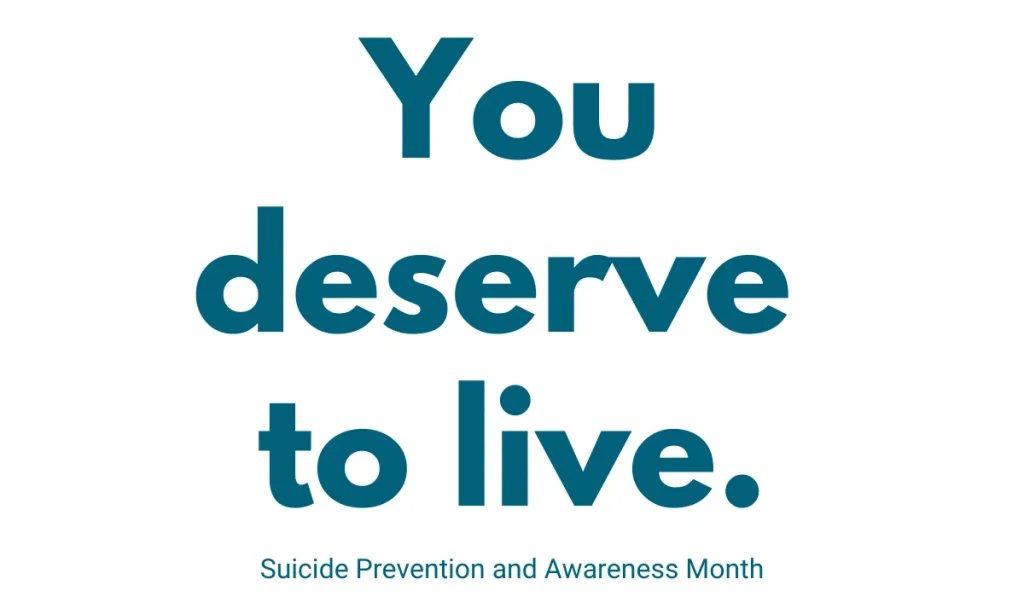This paper explores the significance of emotional support, its attributes, some examples, and how it can be effectively given to loved ones. You will also learn what not to do, ways of accessing support, and what you can expect from it.
What Is Emotional Support?
Emotional support involves giving care, empathy, and understanding to someone in need. It helps individuals feel valued and understood, reducing feelings of isolation and stress. Emotional support could be offered through listening, encouraging, or being present during tough times.
At its essence, it is being there as a constant rock that provides comfort and reassurance, someone who guides another person through their emotions.Providing emotional support has a significant impact on one’s mental health.
It promotes a sense of connection, which is important for psychological wellbeing. These could range from family members, friends, colleagues, or even people in groups that people belong.
What Are the Qualities of Emotional Support?
Adequate emotional support embodies several characteristics. It requires real empathy—where you feel for and with somebody else. Patience matters much because sometimes individuals take long before they can open up completely emotionally speaking.
Consistency accompanied by reliability also matters so that the person recognizes that he/she can always rely on you, as the case may be. Non-judgmental traits coupled with confidentiality are necessary elements that foster trust within which individuals can share freely.
Another important quality is effective communication: active listening without interrupting or giving unsolicited advice and paying attention to nonverbal cues like body language or facial expressions, which can provide deeper insights into how they are feeling emotionally.
Examples of Emotional Support
Depending on the recipient’s needs, emotional support may be given in different forms. Some specific examples are outlined below:
Active Listening
Active listening entails being fully present in a conversation and not interrupting while showing concern about what another person is saying. Active listening helps people become more aware of themselves and feel listened to by those around them, which enhances their sense of being heard and understood.
Thus, active listening involves repeating what has been said to understand it better and letting someone know you received what they were saying. For example, “It seems like you’re overwhelmed with everything on your plate right now” acknowledges the person’s feelings, and its recipient feels understood.

Validating and Empathizing
Empathy and validation of a person’s feelings involve recognizing their emotions and understanding. Phrases like “I can understand why you would feel this way” or “It is normal to be angry about it” give solace. People may become aware that their feelings are real if we validate the emotions that they experience.
More than empathy, it is a deeper understanding of how someone else feels emotionally. This can help connect people powerfully and make them feel less alone in what they go through.
Love, Care, and Encouragement
Speaking words full of love, care, and encouragement can uplift someone’s spirit and provide the emotional support they desperately need. Simple gestures such as hugs, kind words, or thoughtful acts are incredibly meaningful.
Words of encouragement and positive affirmations offer individuals an opportunity to feel supported, which in turn lifts their spirits high above the clouds. The other common way of showing your support is by regularly checking on your friend, sending him supportive messages, or spending quality time with them.
Strategizing
Helping somebody strategize entails helping them devise ways to solve problems together. You might brainstorm ideas, give practical advice, or assist in creating an action plan. For example, Developing strategies together show you’re invested in their well-being and ready to help them address their challenges.
Some examples of strategy involve helping somebody set practical goals while breaking down tasks into manageable units. Hence, there will be no more confusion for the person since they have now been shown a way forward to follow without any stress.

Offering Material Support
Sometimes, emotional support means offering material support, such as assisting with errands, providing resources, or giving money. It shows that you genuinely care about their wellbeing by helping them reduce the practical burdens contributing to emotional strain.
It would also be considered an act of material support when one helps look after children, run errands, or even cook. Such acts can go a long way toward reducing pressure on the person and thereby releasing them from mental slavery, which allows them to major in what is good for them only.
How to Be Emotionally Supportive
Emotional support has to be done with intent, empathy, and consistency. The following are detailed ways through which you can increase your ability to provide effective emotional support:
| Engage Actively In Listening And Empathy | Active listening is vital in providing emotional assistance. These include maintaining eye contact with the listener. At the same time, they speak, actively following what they say, and avoiding interrupting so much as speaking out before knowing why they feel angry, for instance. |
| Show True Empathy: | Empathy refers to the ability to comprehend another individual’s sentiments and share them with this person. When he tells you about his emotions, try seeing yourself in his place. How would you act if you were them? |
| Take a Patient and Understanding Approach | It is important to be patient when giving emotional support since individuals may need time to process their thoughts and feelings. Don’t encourage them to quickly get rid of their emotions or cause them to move on too fast; instead, assure them that you are ready to listen as long as it takes. |
| Provide Practical Help | Emotional support can involve practical gestures that help release tension and show care. Such things can include doing tasks for them which are overwhelming in most cases such as taking children to school, shopping for groceries among others. . |
| Stay Consistent and Reliable: | Consistency and reliability are essential for developing trust in a supportive relationship. Be consistent about your availability and willingness to lend an ear. Stay connected with the person on a regular basis, just checking if they have any needs or how they are coping with life’s challenges |
| Reward Their Rights | One should respect someone else’s boundaries even while trying to support them because each individual has different perspectives or orientations towards certain issues. Note any signals, whether verbal or non-verbal, showing when one wants time alone or private space from friends who want to offer a helping hand. |
What You Shouldn’t Do
When offering emotional support, certain behaviors can impede your efforts and hinder the process of getting help,
| Don’t Judge or Criticize | Do not judge the person’s feelings or reactions at all costs; this may only invalidate them, leading them to feel misunderstood by everybody else around them. |
| Don’t Make Their Feelings Seem Less Important | These are comments like “It’s not a big deal” or “You’re exaggerating”. Such words could minimize one’s feelings and, ,prevent them from discussing his/her emotions with others. |
| Avoid Unsolicited Advice | Occasionally, people may want to talk and empathize with them rather than give advice, even though solutions may seem very tempting. Offering solutions can show that you don’t fully understand their feelings. |
| Do Not Be Distracted | When someone is opening up to you about how they feel, ensure you focus all your attention on them alone, avoiding multitasking as well as checking your phone since it will make one feel less engaged or interested in whatever he/she has said. |
| Avoid Imposing Your Own Emotional State | The most important thing is to focus on the other person’s emotional state rather than putting across your own sentiments over the matter; everyone has their own emotional experiences that are unique and imposing yours can invalidate theirs. |
How To Ask For Emotional Support
Asking for help emotionally may be hard sometimes, but it is crucial for your well-being and the strength of relationships around you; see below steps that will help you effectively communicate what type of support is needed:
| Know What You Need | Think about what kind of support would be helpful to you—whether it is listening ear, advice giving or just being there in silence when weeps occur. Realizing one’s emotions and knowing what one needs comes first before asking for assistance. |
| Choose A Trusted Friend | Someone trusted should be chosen who can provide adequate comfort for this purpose, whether friends close relatives, or a partner who understands situations and shows empathy towards them. |
| Say it straight | Tell them exactly what you need from them. You may want to mention that you are in need of emotional support and then proceed to tell them how they could be of help to you. |
| Appreciate their Support | Thank the person for being there for you. Show gratitude for the time they have given you and also their empathy, which can enhance your relationship with them and make them feel appreciated. |
| Be Transparent and Open | Openly express your feelings. Let this person know what is going on with you and how things appear to you right now, or describe your current feelings. |

Emotional Support: What It Is All About
Emotional support helps to promote overall well-being and resilience by providing several benefits. The following are some important ways that one can expect while receiving emotional support:
| Better Psychological Wellbeing | Emotional support helps reduce stress, anxiety, and feelings of loneliness (i.e., when one knows that somebody actually cares and understands them), thereby improving mood states during difficult times. |
| Increased Resilience | Strong relationships provide a better way of coping with life’s challenges through resilience building techniques (e.g., this kind of support makes us recover faster after setbacks as well as maintain a positive attitude even under challenging circumstances). |
| Increase Self-worth | Feeling valued and supported by others boosts self-esteem; therefore, it reinforces self-worth where life’s ups-and-downs are concerned. |
| Stronger Relationships | Mutual emotional assistance strengthens bonds between people helping each other (i.e., it supports trust, empathy, and understanding, thus creating a foundation for healthier and happier relationships). |
| A Sense of Belonging | Emotional support fosters a sense of attachment and belongingness (i.e., having such people in your life who watch out for you ensures a supportive community and reduces feelings of isolation). |
Suicide Prevention
One way that emotional support is crucial is its place in suicide prevention. Providing immediate, compassionate support to someone during times of severe emotional distress could save their life. It involves recognizing warning signs, offering a non-judgmental and empathetic space for sharing, and guiding them to professional help.
Emotional support can make substantial differences in terms of making them feel valued, understood, and less alone in their struggles.It would be important to recognize the warning signs of suicide, such as sudden mood changes, detachment from friends or family, or even hopelessness being expressed through words.
By doing so, one can avoid tragic endings by just speaking to the person and encouraging them to go for professional help instead. The situation needs to be approached with gentleness and without judgment so that there will be room for the expression of emotions as well as getting the necessary assistance.

Conclusion
To conclude, effective giving or receiving emotional support is vital in building strong relationships on both sides and in promoting mental health. People can create safety zones by actively listening, showing empathy, or using practical aids where emotions are acknowledged and comprehended.
Knowing what to expect from emotional support—such as improved mental health, increased resilience, and stronger relationships—highlights its importance in navigating life’s challenges.
FAQs
What are the signs that someone requires emotional support?
Withdrawal from social activities or losing interest; sudden mood swings; expressions of hopelessness; increased stress levels may indicate they need your help
How can I offer emotional support from a distance?
Using technology to continue staying in touch through phone calls, video chats, and messaging. In addition, sending caring messages, virtual hugs, and being all ears could give a lot of solace even if one is far away.
Can emotional support help with mental health issues?
Yes, emotional support also plays an important role in improving mental health by reducing feelings of loneliness, comforting the individual, and encouraging them to seek professional help where necessary.
What should I do if someone rejects my offer of support?
Respect their decision and communicate that you are available anytime they change their mind; keep on being nice in a non-intrusive manner, reminding them that you always have their back.
How do I maintain boundaries while offering emotional support?
Be clear about what you can’t give. Furthermore, balance your personal requirements against those of the supported person and consult relevant specialists when overloaded.

Russell F. Jones, holding a Master in psychology from the University of Florida. He writes for Smart Parent Solutions, offering practical advice on parenting and child development. His engaging content helps parents navigate family life with confidence and ease. Russell enjoys sharing his knowledge and spending quality time with his family.
